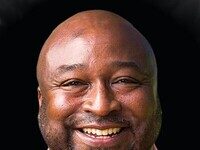 Stanford University recently released a report on its progress in increasing the diversity of its faculty. The data shows that in 2011 there were 51 Black scholars on the Stanford faculty, making up 2.6 percent of the total faculty. Little progress has been made over the past decade. While the number of Black faculty increased by six over the past decade, in 2001, Blacks made up 2.6 percent of the university’s faculty, the percentage as was the case a decade later in 2011.
Stanford University recently released a report on its progress in increasing the diversity of its faculty. The data shows that in 2011 there were 51 Black scholars on the Stanford faculty, making up 2.6 percent of the total faculty. Little progress has been made over the past decade. While the number of Black faculty increased by six over the past decade, in 2001, Blacks made up 2.6 percent of the university’s faculty, the percentage as was the case a decade later in 2011.
Karen Cook, professor of sociology and vice provost for faculty development and diversity at Stanford notes that all underrepresented minorities account for 6.9 percent of the Stanford faculty, up slightly from a decade ago. But Dr. Cook notes, “If you look at underrepresented minority [URM] faculty increase over the last decade, it’s about 1 percent. If we increase the number of URM faculty at the rate of 1 percent a decade, it’s going to be a long time before we have something like the diversity that we’d really like to see at Stanford. We just need to be a bit more proactive. It takes all of us. It can’t come from the top down.”











I have a terminal degree and would love to have the opportunity to teach at Stanford AND they can check off two minority boxes for me. Holla at a brother!!!
The pool of highly qualified Black applicants in academia will only significantly increase when the systemic barriers are eradicated coupled with a relentless assault on institutional racism.
The competition for highly qualified Black faculty members is great in academia but the available pool of qualified Black applicants is not keeping pace with the great demand in higher education because the elite schools such as Stanford, Virginia and the Ivy League schools are able to pay larger salaries for the limited amount of applicants in the pool.
Although there is a proportionately significant number of African Asmericans who have graduated with doctorates in higher education and academia, there is even a significantly higher proportion of non-minorites who apply and get the teaching jobs at elite colleges. More notably, non-English speaking male minorities are chosen over African-Americans with identical educational credentials. This again demonstrates that there is a high degree of ‘institutional’ racism in higher education.